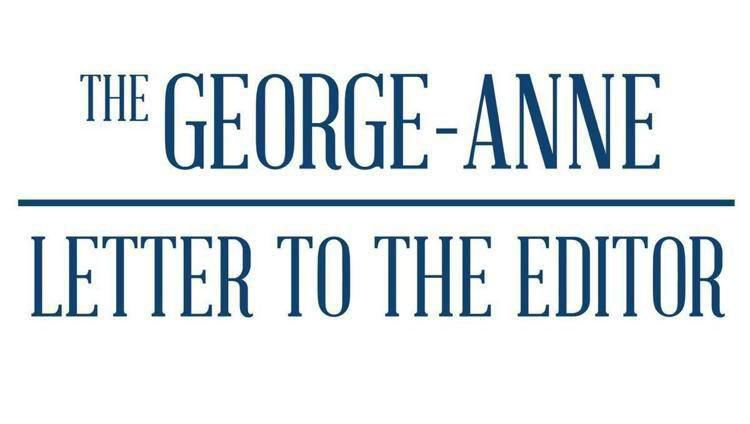Letter to the Editor:
October 12, 2019
Dear President Marrero, Provost Reiber, and the Georgia Southern University community,
The Georgia Southern University Chapter of the American Association of University Professors is committed to academic freedom; the free expression of thought, as Justice Oliver Wendell Holmes, Jr. said, even “freedom for the thought that we hate”; to vocal debate and discussion; and the thoughtful exchange of ideas and opinions.
The photographs and video widely-shared on social media of a group of people, some of whom self-identified as Georgia Southern students, burning books on the Statesboro campus and complaining about having been assigned to read Professor Jennie Capó Crucet’s book Make Your Home Among Strangers compels us to speak out.
Our chapter is shocked and saddened by this behavior during and especially after Professor Crucet’s Wednesday evening talk on our campus. Our chapter is appalled that students used social media to harass and intimidate Professor Crucet, an invited guest of this university. Her visit was intended by the First Year Experience Program to be part of a “Common Reading,” an assignment to all students, to address difficult topics in a way that encourages conversation and reflection. Instead, she was treated to a display of local censorship.
In its 1994 document “On Freedom of Expression and Campus Speech Codes,” the AAUP recommends that:
1) Institutions should adopt and invoke a range of measures that penalize conduct and behavior, rather than speech—such as rules against defacing property, physical intimidation or harassment, or disruption of campus activities. All members of the campus community should be made aware of such rules, and administrators should be ready to use them in preference to speech-directed sanctions
2) Colleges and universities should stress the means they use best—to educate—including the development of courses and other curricular and co-curricular experiences designed to increase student understanding and to deter offensive or intolerant speech or conduct. These institutions should, of course, be free (indeed encouraged) to condemn manifestations of intolerance and discrimination, whether physical or verbal.
3) The governing board and the administration have a special duty not only to set an outstanding example of tolerance, but also to challenge boldly and condemn immediately serious breaches of civility.
There can be little doubt that what occurred after Professor Crucet’s presentation was a clear and serious breach of civility. The Washington Post reported the following tepid statement by the university:
“While it’s within the students’ First Amendment rights, book burning does not align with Georgia Southern’s values nor does it encourage the civil discourse and debate of ideas.”
To say that “book burning does not align with Georgia Southern’s values” is too faint-hearted a response. Our condemnation must be stronger than this. Coming on the heels of the visit to campus by Dr. Damon Williams, whose Inclusive Excellence Plan was embraced by the administration, the university’s response so far does not address the gravity of the incident.
The AAUP@GS agrees that we must stand up for “civil discourse and the debate of ideas,” but AAUP principles also require action. The conduct of a small number of Georgia Southern students appear to be fairly clear violations of many provisions of the Georgia Southern Code of Student Conduct and should be investigated by the Office of Student Conduct.
Not only does the Code of Conduct state that “Any disruptive behavior such as…fighting, threatening behavior, public disturbance, or drunk and disorderly conduct” constitutes a violation, the Code specifically prohibits harassment that includes “words, pictures, or symbols that are directed to an individual…based on that person’s race, color, sex, religion, creed, age, sexual orientation, gender, gender identity, disability, veteran status or national origin.” More specifically, the Code requires action when students engage in “Any act of intimidation or bullying directed against any person or group of person.”
We, the members of the AAUP@GS, call for immediate ACTION to ensure that our university remains a place where the free expression of ideas is embraced. Given what appear to be significant and multiple violations of the Code of Student Conduct, the AAUP urges the administration to respond more directly by initiating an investigation through the Office of Student Conduct.
This is not the first time Georgia Southern has faced such challenges. In 1941, President Marvin Pittman was called away from his desk at the South Georgia Teachers College in Statesboro and made to appear before a meeting of the Board of Regents in the state House of Representatives where he was presented with books taken from the shelves of the Rosenwald Library on the Teachers College campus, books that were alleged to include passages and pictures advocating “Communism” and “race mixing.” President Pittman literally stood for academic freedom on the floor of the Georgia House of Representatives and faced down the Board of Regents and Georgia Governor Eugene Talmadge. President Pittman and other educators on our campus and across Georgia were summarily fired. Students, their friends, families, and fellow Georgians stood with and stood up for President Pittman and other fired educators across the state. Within a year’s time, Pittman and his family returned to their home in Statesboro and President Pittman sat again at his desk in our Administration Building on Sweetheart Circle with a new Governor, a new Board of Regents, and a higher education system stronger and better able to serve the aspirations and hopes of all Georgians.
This, too, is an important moment in our university’s history. We must act in accordance with our Mission Statement and uphold our commitment to “the values of integrity, civility, kindness, respect, sustainability, citizenship, and social responsibility in every facet of the University.”
Sincerely,
The Georgia Southern Chapter of the AAUP



